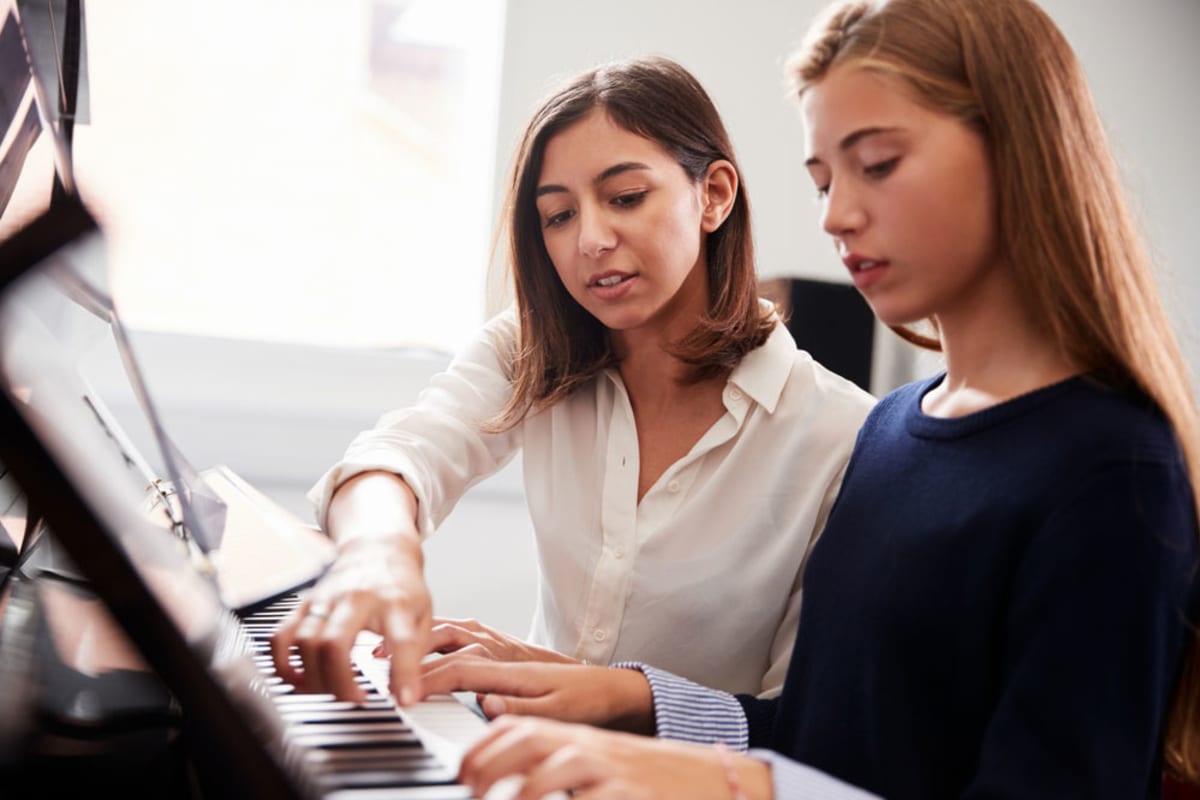
Find music lessons in Akron, OH
Find music lessons in Akron, OH
Confirm your location to see the best music classes near you.
Zip code
Find music lessons in Akron, OH
Confirm your location to see the best music classes near you.
Zip code
Top 10 music classes in Akron, OH
Students agree: these Akron music lessons are highly rated for knowledge, experience, communication, and more.
5.0(1)
9+ years in business
Serves Akron, OH & Online
Alla M. says, "How easy and understanding it is with Lilly she's finds a way to explain it understandable and always a fun experience" Read more
Falls Music School
Serves Akron, OH
Our lessons are tailor-made to meet the individual needs of each student. Sing the music you like and get the help you need to become the best singer possible.
I enjoy helping each student reach their potential regardless of their age or singing experience.
No Excuses Drums & Percussion
5.0(3)
1 hire on Lessons.com
24+ years in business
Serves Akron, OH & Online
Robin O. says, "Our son loves learning from Jason! He’s challenged with easy to follow instruction and fun lessons. The communication and progress of his classes is great too. " Read more
Piano Lessons (From Christina Barrett)
Serves Akron, OH
I majored in piano for 1 year in college. I played piano when I was 9 years old. Adults always had been saying how beautiful I played, and my peers kept saying how good I was. I also got to take classes in a program for the Talented Arts in high school for 2 years and at the arts school in New Orleans one summer and on Saturdays one year. I've been listening to a lot of music and classical music, attending classical concerts, and following the classical music in Europe. I've also performed piano in group settings. I can teach both children and adults.
Brendan Bennett
Serves Akron, OH
Welcome! My name is Brendan Bennett, I am a higher school based in Hudson, OH. I attend Western Reserve Academy and have been playing the piano for 9 years. I play a variety of styles including Classical, Pop, Jazz, Rock and more. I focus on personalized piano and music theory lessons tailored to each student's unique strengths and learning goals. Whether you're a beginner eager to explore the world of music or an experienced player looking to deepen your understanding, I am committed to guiding you through a comprehensive curriculum that leads to whatever goal you intend on reaching, and prepares you for whatever future you would like with
Z That's Me
Serves Akron, OH & Online
I am a jazz pianist, composer, producer with 7 years of experience playing piano. I play in bands, solo gigs, and I teach piano lessons at my local Guitar Center. I love the piano and enjoy teaching people theory, how to practice effectively, and express themselves on the piano fully. I'm also very understanding and empathetic towards my students and always make sure that they have a plan for what they will practice for the next week. If you're excited to learn piano or to become a songwriter, then I'm your guy. Get in contact with me and let's learn some piano!
Other skills I have:
Singing and acting in musicals, experience using music produ
Etc Heid's School Of Musical Arts
Serves Akron, OH
ETC Heid's School of Musical Arts, based in Akron, Ohio and the surrounding areas, is a community-focused non-profit organization renowned for its specialization in competitive show choir. The school is committed to nurturing the musical talents of the youth, providing them with a platform to showcase their abilities, and fostering a love for music and performance. At ETC Heid's School of Musical Arts, the pursuit of excellence in music is always at the heart of what they do.
Iwarble Music
16+ years in business
Serves Akron, OH & Online
I am the jazz vocal professor at Kent State University and also a licensed music educator pre-K through 12th grade. I am a national recording artist. I have released nine albums, and I am a royalty earning member of Ascap as the songwriter of over 100 songs.
Your Music Lessons questions, answered
Answers to commonly asked questions from the experts on Lessons.com.
Reviews for Akron music classes
Recent success stories from people in the Akron area.
Chris J.
Jason has worked with my school kiddos for quite some time now, and I can say that he is student centered, pedagogically sound, and loves teaching music. He’s an active performer as well. He teaches the practical application of drums and percussion that I want my own school students to emulate.
No Excuses Drums & Percussion
How Lessons.com works
Search
Search, get cost estimates, contact teachers, and book—all for free.
Compare
View profiles, read reviews, check qualifications, and see prices before hiring.
Hire
Ask questions, confirm their availability, and hire the right tutor when you're ready.